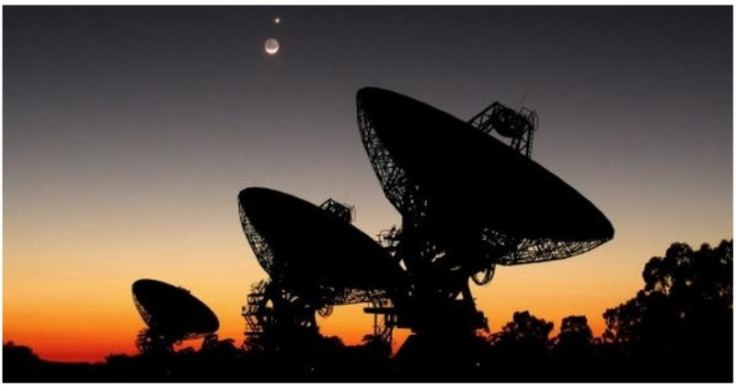Breakthrough Listen's Matthew Bailes: Responding to alien signals could be dangerous

The scientist responsible for captaining Australia's efforts in the search for alien life has warned that responding to a potential alien signal could prove perilous.
Swinburne University of Technology's Professor Matthew Bailes has been tasked with searching for alien life as part of the Breakthrough Listen initiative – a $100m (£64.07m) scheme privately funded by Russian billionaire Yuri Milner and backed by author, professor and physicist Stephen Hawking.
However, he has warned that it could be potentially dangerous to respond to alien signals if we were to encounter them.
Speaking to German press agency dpa, Bailes said: "I think we should think very carefully before we reply to a signal received from outer space.
"The history of weak civilisations contacting more advanced civilisations is not a happy one."
Bailes will lead the Australian part of the project from the Parkes Observatory – an extremely powerful telescope in New South Wales – where a supercomputer will be built.
Nonetheless, Bailes told dpa is excited about the upcoming project but is unsure how it may pan out. He said: "The difficulty is to know what sort of signal we are looking for. There is no manual on how to find aliens. We'll have to imagine the sort of transmissions an alien race might send, and a variety of strategies will have to be deployed ranging from looking for single bursts to signals that might be more encoded in other transmissions.
"The signal is likely to be quite feeble after coming vast distances. We'll need to be looking for advanced civilisations that have significantly more transmission grunt than we are capable of on Earth.
"Hopefully they send a transmission pattern we can recognise such as prime numbers, or a mathematical construct at a frequency that might have some significance to us."
One part of the Breakthrough project will involve two high-power telescopes being pointed at various spots in the universe that have been touted as possible hotspots for alien activity. These telescopes will be able to detect radio signals from huge distances, which will hopefully give those involved a better understanding regarding the location of extraterrestrial life in the universe.
© Copyright IBTimes 2025. All rights reserved.






















